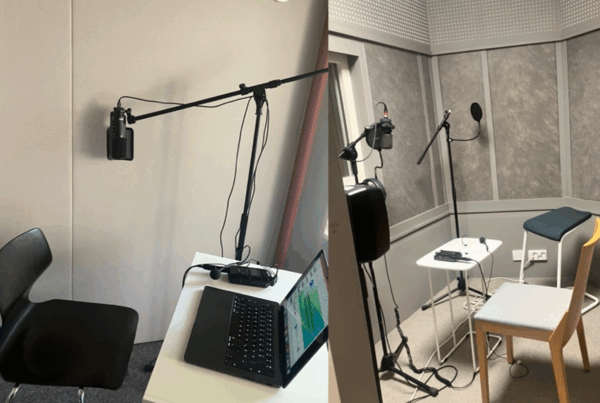
Percentage of Europeans who speak three or more languages (2012 Eurobarometer ‘Europeans and their Languages’, p. 14)
The 2012 Eurobarometer Report “Europeans and their languages” was published last month and makes fascinating reading. To begin with, it’s always heartening to see the value the European Union places on linguistic and cultural diversity:
There are 23 officially recognised languages, more than 60 indigenous regional and minority languages, and many non-indigenous languages spoken by migrant communities. The EU, although it has limited influence because educational and language policies are the responsibility of individual Member States, is committed to safeguarding this linguistic diversity and promoting knowledge of languages, for reasons of cultural identity and social integration and cohesion, and because multilingual citizens are better placed to take advantage of the economic, educational and professional opportunities created by an integrated Europe. A mobile workforce is key to the competitiveness of the EU economy. (p. 2)
It is even more heartening to see that this vision is shared by the majority of Europeans: almost all Europeans (98%!) think that learning at least one foreign language is important for the future of their children. And the current generation is itself well on the way towards that goal: with 46% of the population, monolingual Europeans are now in the minority. 19% of Europeans are bilingual, 25% are trilingual and 10% speak four or more languages.
The European policy objective of a trilingual population (national language, English, another language) is already met by the majority of the population in Luxembourg (84%), the Netherlands (77%), Slovenia (67%), Malta (59%), Denmark (58%), Latvia (54%), Lithuania (52%) and Estonia (52%). By contrast, the countries furthest away from this objective include Portugal and Hungary (13% in each), the UK (14%) and Greece (15%).
Looking at where Europeans are now in terms of knowledge of languages and relating it to where they want their children to be makes me feel confidently optimistic about the future of multilingual Europe!
At the same time, not all findings of the 2012 Eurobarometer Report “Europeans and their languages” give cause for optimism, as knowledge of languages has decreased considerably in some countries vis-à-vis the 2006 Eurobarometer Report “Europeans and their languages”. The proportion of respondents able to speak at least two languages has declined considerably in these five countries:
- Slovakia (-17 percentage points to 80%)
- the Czech Republic (-12 percentage points to 49%)
- Bulgaria (-11 percentage points to 48%)
- Poland (-7 percentage points to 50%)
- Hungary (-7 percentage points to 35%)
The culprit is English
Why has bi- and multilingualism decreased so notably in these Eastern European countries when the overall European trend is towards more language learning and valuing linguistic diversity more? I knew the answer before I read the explanation of the report because I actually was part of making Eastern Europeans less multilingual at one point in my life.
As a PhD student, shortly after the fall of the Berlin Wall and the end of the Cold War, I had a job in what used to be the German Democratic Republic that involved teaching English linguistics to high school teachers of Russians who were being retrained to become high school teachers of English. This bizarre scenario was repeated across Eastern Europe: as everyone scrambled to learn English, demand for Russian and, to a lesser degree, German, plummeted. The widespread result was not bilingualism in a different combination of languages but monolingualism.
Why?
The Russian-to-English teacher re-training program on which I taught was comparatively well-resourced but even so the outcomes were not great and the fact that you can’t simply switch from one language proficiency to another was the major obstacle. Quality language teaching needs a good infrastructure including qualified and proficient teachers, resources, and practice opportunities. It is difficult if not impossible to willy-nilly transplant this infrastructure from one language to another. For instance, some of the teachers I taught had for many years organized language camps and exchanges with schools in Russia. They had no comparable contacts in an English-speaking country and so camps and exchanges went out the window. In this way many Russian language learning opportunities, big and small, were not replaced with English equivalents but disappeared.
It is the effects of the lost language learning opportunities in the 1990s in Eastern Europe that we are now seeing as statistics of declining numbers of multilinguals in the new member states. The 2012 Eurobarometer Report “Europeans and their languages” speaks of a ‘lost generation:’
Within these countries the proportions of respondents able to speak foreign languages such as Russian and German have declined notably since 2005. For example, the proportion able to speak Russian has dropped in Bulgaria (-12 points), Slovakia (-12 points), Poland (-8 points) and the Czech Republic (-7 points). Similarly, the proportions speaking German are down in the Czech Republic (-13 points), Slovakia (-10 points) and Hungary (-7 points). It is likely that in these post-Communist countries these downward shifts are the result of a ‘lost’ generation. Many of those who were able to speak German (following the Second World War) or who learnt Russian at school (it is now much less commonly taught) are now deceased, or, as time has elapsed, have forgotten how to speak these languages. (p. 16)
The global hegemony of English works in mysterious ways: not only is it closely tied to the monolingual mindset in English-speaking countries but apparently it can also result in monolingualism in Bulgarian, Czech, Hungarian, Polish or Slovakian!






 This work is licensed under a
This work is licensed under a
It says that “19% of Europeans are bilingual,” how come this is lower than other sources like the Eurobarometer? I’d like to use this article as a source but didn’t know if this has an explanation or if it’s just a typo, thank you.
Thank you for your interest, Philip! The number is correct (s. p. 7 of the 2012 report):
46% of Europeans have not learned another language = monolingual
54% have learned at least one other language; out of these 10% have learned 3 or more other languages (=quadrilingual+); 25% have learned 2 (=trilingual); which leaves 19% having learned one other language (=bilingual)
Hope this helps!
Hi Ingrid (and all),
I am a Systems Engineer in a statistical software US-based company.
By using a new piece of software of us, based on the same source of this blog post I recently made some public available reports and analysis that you can find here:
https://public15.jmp.com/packages/Knowledge-of-Languages-in-the-European-U/js-p/z0_Y6vBDDhGT4d7Jds_WT
I found that there is a significant relationship between subfamily of country official language and knowledge of English in the same country: the percentage of English people in Germanic countries is about 66%, that is the double of Balto-slavic (33%) and Romance (32%) countries. This difference is not by chance as the formal statistical teast (ANOVA) suggests – that is the last report of my package: https://public15.jmp.com/packages/EU-procedural-languages-by-Official-Lang/js-p/z0_Y6vBDDhGT4d7Jds_WT-6
Question is: does it make sense also from a linguistic point of view?
I’d like your overall opinion on the reports too – I am just a software engineer with curiosity in languages.
Cheers, Massimo
Thanks for sharing, Massimo! This looks fascinating! Genetic relationships between the languages may be part of the explanation for the difference you notice but language policy in education (is English language learning compulsory and, if yes, for how long?) probably plays a greater role. I’ll come back to your figures and maps to study them in greater detail, for sure.
Hi, I grew up in Romania…I want to make a short remark – during communist years, here they were teaching French and Russian in schools. French was considered the most important language – it used to be very popular in Europe up until a few decades ago (or at least in my country) and it was the main language of use if you wanted to communicate with foreigners
Here most people above 40 (including my teachers) know French well, but little English. So saying that they are less bilingual because of little knowledge is English – I think its erroneous….and I personally would prefer for French to become popular again, it’s tiring using English all the time I wish we had 2 languages of use (I speak them both fluently)
Oh and Russian was mandatory in ex-USSR countries (the 6 neighboring countries of Russia). Our neighbor Moldova (who actually used to be romanians) – I know Russian was forced upon them, as it was in all other USSR states. But not on the rest of us, in my country it wasn’t mandatory everyone spoke French here
Thanks for an insightful post. I would like to share one lived experience of multilingual Pakistan. Like all other places the state claims to promote multilingualism and an average Pakistan has two or more than two languages in his/her repertoires, the relations between these multilingual populations is rather asymmetric. The difference and social distance is so very obvious. Despite being officially labeled as multilinguals, their mastery/competencies in marketable languages vary to a great extent. I wonder that despite sharing the same culture, the speech communities develop very different linguistic practices. I point I am trying to make is that giving facts about multilingual population is one thing. The emerging relations between them are another. In the case of Pakistan, it seems that peoples’ access to valued linguistic resources are regulated through the formation of private institutions where the language practices and processes are very exclusive and monopolized by the new multilingual cosmopolitan elites. The statistics given in the report rings a sentence from Conrad’s Lord Jim:
‘They wanted facts. Facts! They demanded facts from him, as if facts could explain anything’.
This is the kind of report that needs to be discussed among researchers, educators and government officials in ASEAN. I’m yet to see a coordinated research effort in monitoring linguistic resources like this one and the current debate seems rather focused on how to improve English. Having been here for almost a year, the only pro-multilingual argument I’ve heard to date is by the former prime minister of Thailand at a university forum. He stressed that English is not enough to create a strong ASEAN and more effort should be directed to teaching regional Asian languages. The rest of the forum, however, was all about how that particular university is seen as a leading university and its graduates are perceived as excellent workers by their employers because its language of instruction is English. At the same time, although I don’t have official stats, there seems to be an increasing number of government, private and commercial schools that are teaching Chinese as a foreign language; I often hear the problem of finding ‘quality’ EFL teachers, but I’m under the impression (at least in Bangkok) that there is plenty of qualified CFL teachers around. I wonder how this will play out in the future…
Sorry, fascinating report to me (and very germane to proposals I’m working on ;-), can’t help myself –>
“The proportion of Europeans believing that there are no languages that are important for a child to learn for their future remains the same (2%). ” (p. 78)
Wonder what the response would be like in the U.S.?
Yes, it would also be low, but I’m guessing a significantly higher percentage of Americans than Europeans would say they don’t think learning a foreign language is that important — and why not? “Their” language is “the” global language, after all, the language Europeans overwhelming cite as “the most useful” in this survey.
As a follow-up to my somewhat premature response above–>
It’s there — hard, quantitative evidence of an English-centric multilingualism in Europe — in the report:
“English is much more likely to be cited by respondents as the first i.e. most fluent foreign language spoken (32%), than the second (11%) or third (3%)” (from p. 20)
Great — and informative post! I’m curious as to what the measure is in terms of determining “bilingual”, “trilingual”. Presumably the data are based on self-reporting. If this is the case, then an immediate question I have is: What percentage of Dutch, Germans, Danes, etc. consider their best second/foreign language to be a language other than English?
Probably should take a close look at the report myself — and I will soon 🙂
Sorry, I meant “What is your perspective on the future of minority languages in Europe?” 🙂
Thanks!
Thanks, Lidia! It’s a difficult question. Commodification of language skills has certainly introduced new hierarchies. Personally, I think the policy of promoting trilingualism is both visionary and pragmatic. Indeed, it should leave space for smaller languages to thrive, too, and I like the model that public education should be responsbile for ensuring that everyone knows the national language, English, and another language (indigenous or non-indigenous minority language, language of a neighbour, or whatever the local consensus and capacity is; according to the Eurobarometer report, a fair number of Europeans think Chinese should be that 3rd language …).
Dear Ingrid,
I also find very encouraging the increase of multilingual speakers in Europe in the recent years and the fact that it seems to continue in that direction in the nearby future. However, as a minority language speaker, I am afraid this multilingualism promoted to facilitate “mobile workforce” and make the European economy more competitive, is indirectly excluding languages of lower economic power and more specifically minority languages, such as Catalan, that do not have the status of being official languages in Europe. From my point of view, the EU promotes and aims at saveguarding an oversimplificated sort of multilingualism and should, in first place, ensure the survival of those minority languages that are at risk of being assimilated by official state languages which are more present in international communications.
What is your perspective on minority languages in Europe?